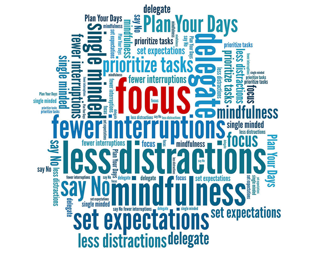-
Module 2.0 How to be Successful in this Course
-
Module 2.1 Introduction to Natural Gas
-
Module 2.2 The Natural Gas Industry in British Columbia
- Overview
- Learning Outcomes
- Natural Gas Science – The Simple Version
- Natural Gas Science – Chemistry
- Natural Gas Science – Physics
- Natural Gas Science – Units of Measurement
- Natural Gas Science – Geology
- Natural Gas Resources and Uses
- Oversight of the Natural Gas Industry
- Understanding Land Rights and Natural Gas
- Energy and the Future
-
Module 2.3 Upstream – Well Site Selection, Preparation and Drilling, Completion, Production, Water Recycling, and Reclamation
- Learning Outcomes
- The Upstream Sector – Extraction and Processing
- The Upstream Sector – Exploration and Site Selection
- The Upstream Sector – Preparation and Drilling
- The Upstream Sector – Completion
- The Upstream Sector – Production
- The Upstream Sector – Water Recycling
- The Upstream Sector – Reclamation
- Upstream Companies and Jobs in British Columbia – Companies
- Upstream Companies and Jobs in British Columbia – Industry Associations
- Upstream Companies and Jobs in British Columbia – Professional Associations
- New Vocabulary
-
Module 2.4 Midstream – Transportation, Processing, Refining
- Learning Outcomes
- The Midstream Sector
- The Midstream Sector – Processing Natural Gas
- The Midstream Sector – Liquefied Natural Gas
- The Midstream Sector – An Emerging Industry
- The Midstream Sector – Processing LNG
- The Midstream Sector – Proposed LNG Projects in British Columbia
- Transportation
- Midstream Companies and Jobs in British Columbia
-
Module 2.5 Downstream – Refining and Markets
-
Module 2.6 Health and Wellness in the Natural Gas Industry
-
Module 2.7 Safety
-
Module 2.8 Terminology and Communication
-
Module 2.9 Jobs and Careers
- Learning Outcomes
- Industry Outlook
- Technology is Changing Workforce and Skills
- Employment in the Natural Gas Industry
- Employment in the Natural Gas Industry – Types of Employment
- Employment in the Natural Gas Industry – Range of Jobs
- Employment in the Natural Gas Industry – High Demand Jobs and Occupations
- Occupational Education and Training
-
Module 3.0 How to be a Valued Employee
-
Module 3.1 Identifying Interests and Skills
-
Module 3.2 Looking for Employment in Natural Gas
-
Module 3.3 Applying for Employment in Natural Gas
This is a big one. An employee who cannot effectively manage their time can be a drain on a project’s budget, create safety issues or make scheduling a nightmare for their supervisor. Failing to manage time effectively also causes unnecessary stress.
Time management is the process of organizing and planning how to divide your time between specific activities. Good time managers work smarter – not harder, so they get more done in less time, even when time is tight, and the pressure is on.

Keep in mind that being busy is not the same as being effective – it often signals exactly the opposite.
Time Management Tips
Here are some tips to help manage your time effectively:
- Have a clear purpose. If you don’t know exactly what you need to accomplish, how will you know when you have achieved it?
- Create schedules and set timelines. Be specific and detailed when doing this. For example, many of us want to start exercising more, so we tell ourselves “I’m going to walk for an hour every day”, and before we know it a whole week has passed, with no walking.However, if we tell ourselves “I am going to walk for an hour Monday, Wednesday and Friday from 7 am to 8 am” AND write it down somewhere that we see it every day – we are more likely to follow through.
- Work one task at a time. Multitasking is a time-suck, rather than a time-saver. You are better off scheduling specific tasks for a set amount of time rather than trying to juggle three at once.
- Get rid of distractions. No one needs to know what is happening on Instagram or Snapchat all day long. Turn off push notifications. Limit timewasters in your day like social media, channel surfing or pointless chit-chat at work. Stay on task, stay focused.
- Do the high-impact work first. When making your schedule for the day or the week, list the most important tasks first. Achieving the one task that is the most important makes you look better than if you achieve thirty less important tasks. Note, this does not apply specific procedures or protocols (e.g. safety) that must be adhered to when completing a task.
- Write it down. Making a list of what you need to do not only helps to keep you on track, but it can also help keep you motivated. We get a sense of satisfaction by being able to cross something we have completed off of a list and being able to actually see on paper, a record of what we have done with our time.
- Ride your motivation wave. We all have different levels of energy and motivation depending on the time of day or day of the week, or even the weather. Take advantage of the times when you know you have more energy to support the times when you have less energy. For example – if you are motivated to spend time in the kitchen on the weekend, chop up some extra vegetables to use for lunches or dinners on a day when you have less energy or interest in meal preparations.
Learning Activity 2: Practicing Teamwork
This is a fun teamwork exercise that that will get you to use all the skills included in teamwork
.
Instructions
- Write down ten (10) things that you did yesterday in no order.
- Beside each, write one of the following words:
Urgent
, meaning it absolutely had to happen yesterday- b. “Less-urgent” meaning it was important but could wait a day or two
Not-urgent
meaning it could happen at any time, as long as it happened eventually (i.e. within a week or month)Time-waster
meaning it was an activity that was unproductive or had no importance
- Next, on a scale of 1-10 with 1, being the most attention, and 10 being the least attention, rate which tasks or activities you spent most of your time on.
- If you had the chance to have a “do-over” of yesterday’s activities and knowing that if you are more specific about the details of your schedule, plan out the day making the best use of your time to achieve the same things.
- Discuss as a class what you see about how you manage your time.
